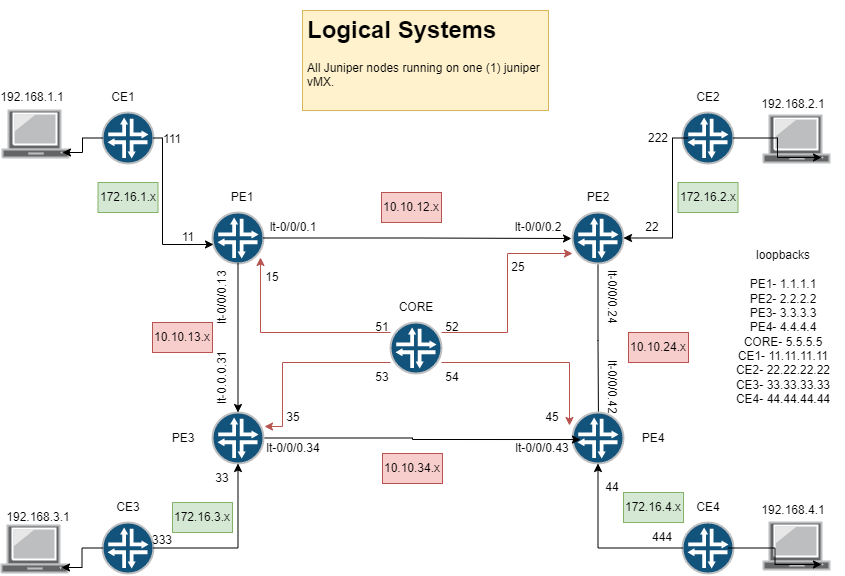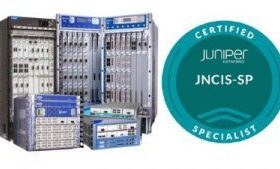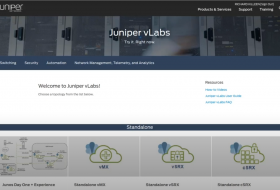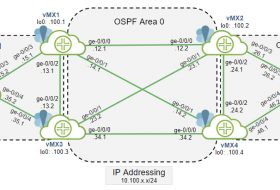Logical systems on Juniper is awesome it allows you to have fun times studying for the Juniper JNCIA JN0-104 without big PC usage
Why use Juniper Logical Systems
As we can see in the image we have nine routers however all these routers are just running on one
juniper vmx image, this is a fantastic piece of software that juniper has implemented into a lot of
their devices which allows you to logically separate the actual device into multiple routers.
Now we’ve seen something similar in our Juniper JNCIA studies with the
routing instances where of course we could have overlapping
IP ranges etc and have separated logical routing tables however with the logical
systems that goes a step further this.
Router CE1 in the image is a complete independent router it has
access to its own routing protocols, its own router id’s and it’s completely own
routing tables.
Again same with p1 in the image again this
is its own complete router, it’s got all the operational
functionality of a normal router but it’s virtualized automatically within
one particular running node the same with our core in the image.
What parts of the Juniper JNCIA JN0-104 can you study with logical systems
Our core again is a virtualized router
Within another router and so with these you can run things like
all your routing protocols, you can run your OSPF and your IS-IS or your RIP
you can also run BGP and your MPLS of course you can do you’re your
tunnelling and all your layer 2 services.
From the video we can see that all of these other logical systems are
running within this one juniper device
Resource benefits of Juniper logical Systems
Now why this is actually quite good is this particular
device the control plane is running four gigs of ram and four cpus
and the forwarding plane is running four gigs of ram and three cpus.
however as we’ve seen in the diagram that i’m using we are running nine instances of this so
this is a total of eight gigs per image and if we times that by nine so eight gigs times nine
nodes that equal 72 gigs under full load of course
now that’s a lot of memory a lot of usage and of course if you’re only
running a device that has let’s say your home pc is limited with
the amount of memory that it can do and you’re limited with your cpus then
trying to run the relatively big topology can be extremely frustrating and
extremely slow and this is the benefit of Logical Systems
Try applying Juniper Logical Systems to your Juniper JNCIA JN0-104 training and see real benefits compared to physical equipment and there is a link to a great Udemy Juniper Course







